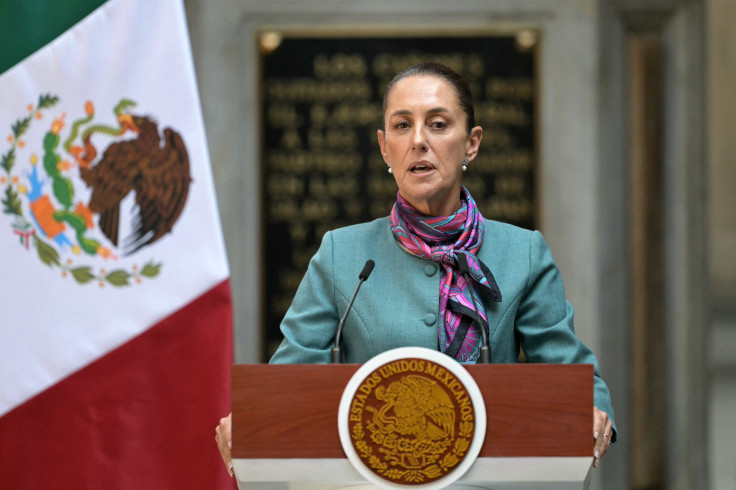
The Mexican government is negotiating with regional counterparts so they take deportees from the U.S., reducing the expected burden on the Claudia Sheinbaum administration as it gears up to deal with the incoming Trump administration's planned mass deportations.
The intention was confirmed by President Claudia Sheinbaum, who said on Thursday that Foreign Minister Juan Ramon de la Fuente is "speaking to some other countries whose residents cross our territory to get to the northern border."
"(The Foreign Minister) Will explain himself but he's talking to several countries, especially in Central America, and we'll always be close to them, because even though we have a trade agreement with the U.S. and Canada, we'll always be close to Latin America," Sheinbaum added. She did not provide more details.
Mexico is already seeking to negotiate an agreement with the incoming administration to avoid taking deportees from third countries, one of the main challenges of the president-elect to implement his crackdown on immigration.
The intention follows reports detailing the Trump team intending to do exactly that, as it tries to figure out what to do with potential deportees from countries unlikely to take them back, Venezuela, Cuba and China among them.
Asked about the reports earlier this month, Sheinbaum said in her daily press conference that her government hopes to "reach an agreement with the Trump administration so that, in case these deportations happen, they send people from other countries directly to their countries of origin."
Other countries reportedly under consideration were the Bahamas, Panama, Grenada and Turks and Caicos. However, Panama, Bahamas and Turks and Caicos already rejected the notion.
But even if Mexico doesn't end up taking migrants from third countries, its authorities will still have their plates full. The country is already preventing many migrants from reaching the U.S. southern border under an agreement with the Biden administration, and is also preparing an interagency plan should deportations from Mexicans living without documents in the U.S. increases exponentially.
"We are working to consider all possible scenarios, and there is an interagency plan that the president will announce at the appropriate time. The responsibility and obligation of the Mexican state is, obviously, to the Mexican people. Therefore, they represent the priority," said Secretary of Foreign Affairs Juan Ramón de la Fuente earlier this month.
The country is also set to open over two dozen migrant shelters close to the border. Concretely, Baja California Gov. Marina del Pilar Ávila Olmeda said 25 shelters will open exclusively to deal with the expected influx of deported migrants. Five of them will be set up in Tijuana and two others in Mexicali, the capital of Baja.
Each one will house up to 500 people. Some will exclusively hold single men, other women, unaccompanied minors and families.
© 2025 Latin Times. All rights reserved. Do not reproduce without permission.





